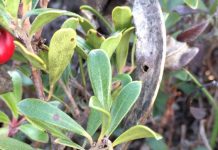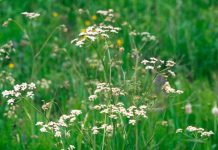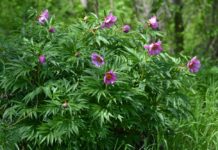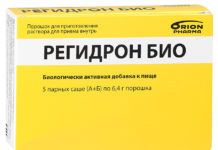The healing power of raspberries has long been used in folk medicine - not only berries, but also the leaves of the plant contain many valuable substances for health. However, before using the green part of the plant for the purpose of healing, it is necessary to study the medicinal properties and contraindications of raspberry leaves.
Material Content:
- 1 The chemical composition of raspberry leaves
- 2 Raspberry leaves: medicinal properties
- 3 Healing properties for a woman’s body
- 4 Benefits during pregnancy and children
- 5 Traditional medicine recipes with raspberry leaves
- 6 Raspberry leaf plant teas
- 7 When to collect raspberry leaves, how to dry and store
- 8 Contraindications
The chemical composition of raspberry leaves
Raspberry shrubs grow not only in the wild, many gardeners successfully grow hybrid varieties of plants in their suburban areas.
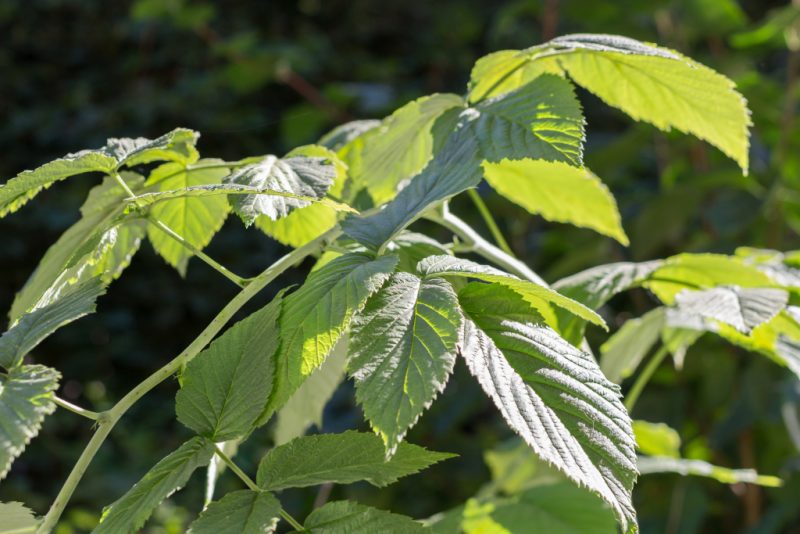
Raspberries are widespread thanks to delicious and healthy berries, jam of which is considered the first cold-fighting remedy. But far from everyone knows that plant leaves also have powerful healing potential. And they certainly deserve to take a place in the home medicine cabinet.
The biochemical composition that determines the beneficial properties of raspberry leaves is considered unique. And medicines prepared from the green mass of the plant are distinguished by universal effects on the body.
The therapeutic value of raspberry leaves provides such substances in the composition:
- vitamins - A, C, E, groups B and K;
- minerals - potassium, calcium, phosphorus, magnesium, chlorine, sulfur, sodium, iron, zinc, boron, manganese, copper;
- cellulose;
- flavonoids;
- mineral salts - oxalates and salicylates;
- resins;
- organic fruit acids - lactic, tartaric, succinic, citric, malic, salicylic, folic;
- tannic phenolic compounds;
- pectins;
- mucus;
- Sahara.
A curious fact: raspberry leaf is rich in a record amount of vitamin C - in 100 g of plant material contains 25 mg of ascorbic acid.
Raspberry leaves: medicinal properties
Raspberry leaf has exceptional healing properties, so its use is appropriate in the treatment of most organs and systems of the human body.
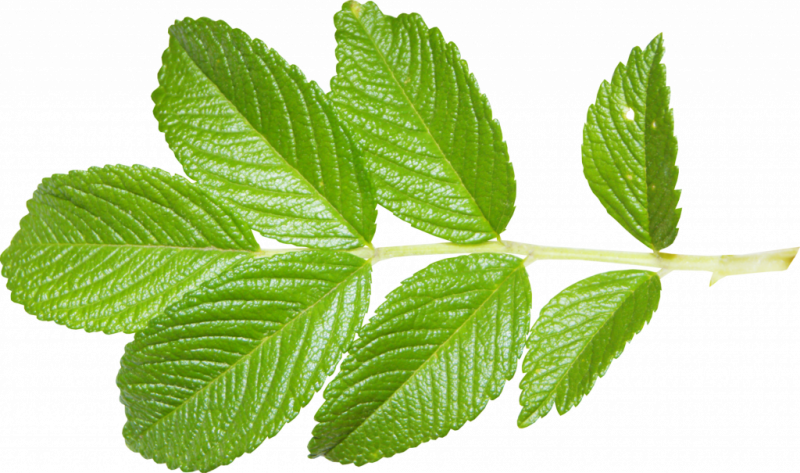
- With colds, flu and acute respiratory infections, raspberry leaves will have an antipyretic, expectorant, diaphoretic, immunomodulating and anti-inflammatory effect.
- A decoction of raspberry leaf will help stop bleeding, remove toxins from the body, eliminate intestinal upset, ease breathing in bronchitis, and improve well-being in hemorrhoids and colitis.
- And rinsing with plant-based products will relieve swelling, eliminate sore throat with tonsillitis, pharyngitis and laryngitis, and stop the inflammatory process with stomatitis.
Indications for use of raspberry leaf:
- viral infections, colds, respiratory infections;
- pathologies that cause bleeding - peptic ulcer, hemorrhoids, gynecological diseases;
- stomatitis, gingivitis;
- conjunctivitis;
- acne;
- avitaminosis;
- inflammation in the digestive tract;
- dermatological problems, psoriasis, eczema;
- kidney disease, with the exception of urolithiasis;
- hypertension;
- anemia;
- gastric or uterine bleeding;
- prostate diseases;
- ovarian dysfunction;
- infertility;
- herpes;
- sores, bruises, insect bites.
It is characteristic that the dried raspberry leaves fully retain their healing properties and, after heat treatment, can be used to prepare a therapeutic agent.
Healing properties for a woman’s body
The use of raspberry leaves is recommended for solving many women's health problems. Tea from raspberry leaf helps relieve the condition with heavy periods. In addition, decoctions, teas, baths and douching with infusion from the plant have a powerful therapeutic effect in the treatment of thrush, infertility and ovarian diseases.
Benefits during pregnancy and children
Especially valuable are the properties of raspberry leaves for women during pregnancy. The fact is that the plant helps soften the cervix and increases the elasticity of its walls.
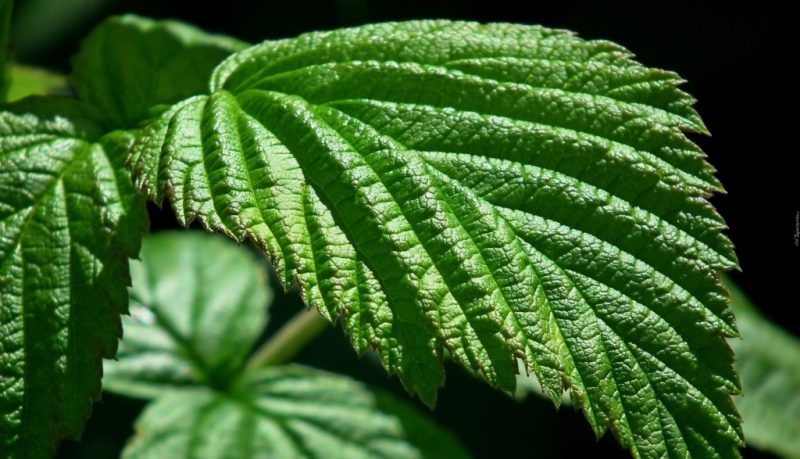
Taking such a decoction in the last stages of pregnancy helps to minimize the risk of breaks. Therefore, in many European countries, gynecologists recommend taking tea from the leaves, starting from the 35th week of pregnancy. Within 14 days, the drink is taken warm, one glass per day.
As the birth approaches, both the total amount of drink consumed per day and its temperature increase. As a result, at the 40th week, pregnant women are shown taking four cups of hot raspberry tea per day.
Drinking raspberry leaf tea in early pregnancy can provoke spontaneous rejection of the embryo and lead to a miscarriage.
Therefore, the reception of such tea by pregnant women is possible only after agreement with the attending physician.
For children
The use of raspberry leaf for the treatment of children is allowed from the age of six months. Raspberry teas and decoctions are relevant if the child has a cold with a fever. Start taking raspberry-based products with a minimum volume of half a teaspoon.
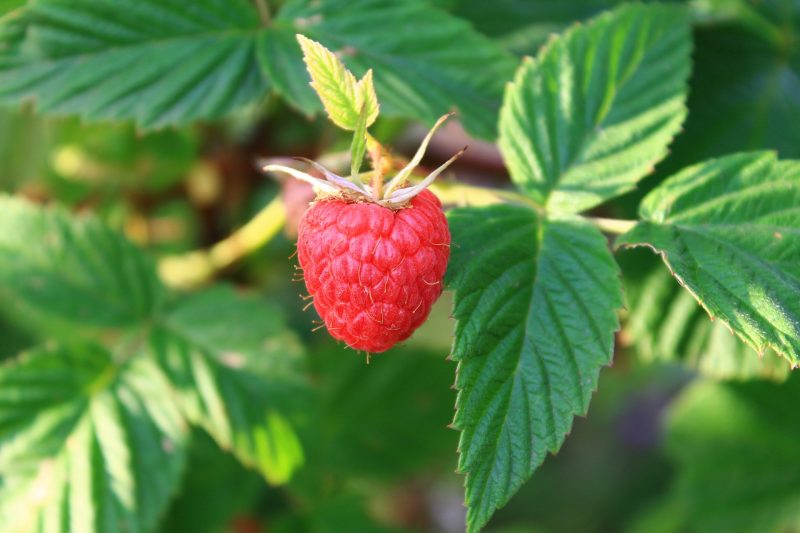
However, it should be remembered that the plant is capable of causing allergies, and therefore, if after eating raspberry tea the baby has a rash, it must be stopped.
Older children are recommended raspberry leaves as a remedy for teenage acne and rashes. In this case, decoctions are applied externally, in the form of lotions.
Traditional medicine recipes with raspberry leaves
The recommendations of traditional healers provide for several different ways of using the plant - tea with raspberry leaves, a decoction based on them, infusions and ointments, as well as alcohol tincture.
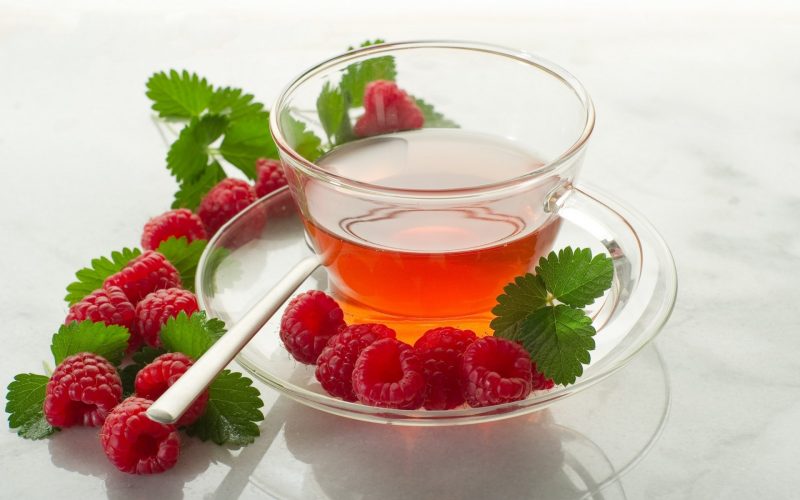
- The classic recipe for making tea contains such proportions - three tablespoons of raspberry twigs and leaves are poured with a glass of boiling water and insisted for 15 minutes. Take half of the portion with a three-hour interval. The use of tea is indicated for colds and viral lesions, gastrointestinal diseases, heavy periods, stomach and uterine bleeding.
- A decoction of raspberry leaf is prepared in the same proportion as for tea. But after pouring, the composition is kept for 10 minutes in a water bath, and then insisted for an hour. Apply for baths, rinses and douching.
- Alcohol raspberry tincture is prepared as follows: for one tablespoon of crushed raw materials take five tablespoons of vodka. The liquid is placed in a container of dark glass and incubated for 10 days in a dark place. At the expiration of this period, the product is used to wet the swabs used from insect bites.
- An ointment from the green mass of raspberries is prepared from fresh leaves. For this, plant materials are washed and dried, then rubbed in a mortar and mixed with petroleum jelly. One part of the leaves will need two parts of Vaseline.
- Alternative preparation: juice from fresh raspberry leaves is mixed with petroleum jelly or ghee. Four teaspoons of fat are taken per teaspoon of juice.
- For the treatment of herpes, gruel from crushed fresh leaves of the plant is applied several times a day to a sore spot.
Raspberry leaf plant teas
In the treatment of certain diseases, other types of medicinal plants are added to the classic raspberry tea. This allows you to increase the intensity of its effects and thus enhance the therapeutic effect.
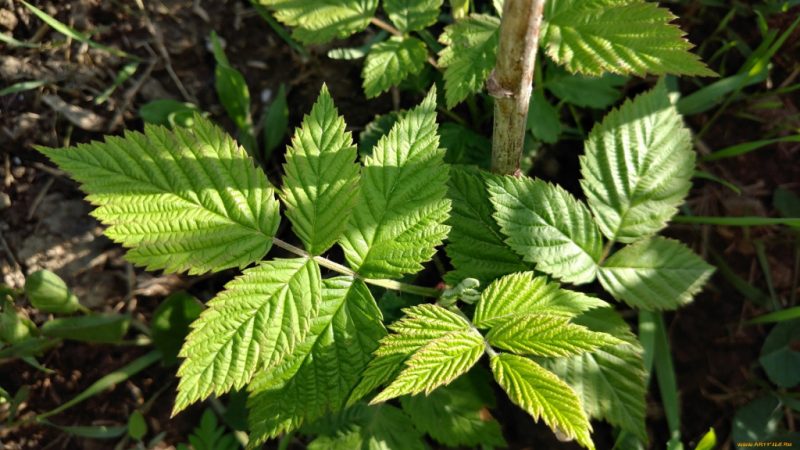
- From bronchitis. The same amount of raspberries, coltsfoot and thyme are mixed. To prepare one serving of tea, take a tablespoon of the collection. Drink hot with honey.
- From infertility. The same amount of raspberry leaves and red clover are mixed. For one serving of tea, take a teaspoon of the collection. Take a cup a day for four months. Then take a two-week break.
- From renal colic. Mix one part of dry raspberry raw material and five parts of birch leaves. The collection is poured with five liters of boiling water, it is insisted for an hour and used in the form of a hot bath.
- From ovarian dysfunction. The classic recipe for tea includes one spoonful of currant leaves. Insist 15 minutes. Take half a glass three times a day.
- From heavy menstruation. The same amount of raspberry and strawberry leaf, oak bark and yarrow grass are mixed. A glass of boiling water is taken on one tablespoon of the collection and the composition is kept in a water bath for an hour. Take in filtered form, warm, once a day. The course is a week.
When to collect raspberry leaves, how to dry and store
In order for the preparations made from raspberries to provide the optimal therapeutic result, it is necessary to take care of the proper collection and storage of raw materials.
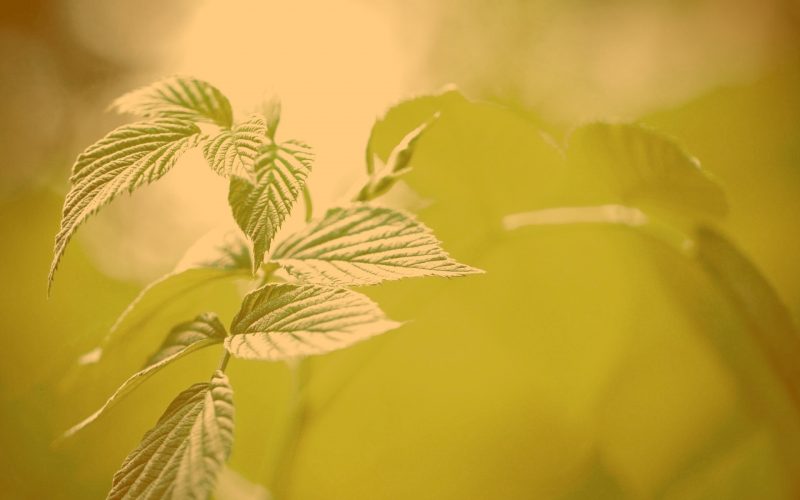
The raspberry leaf accumulates the largest amount of healthy substances in May-June. This period is especially recommended for collecting green mass. The collected raw materials are dried away from direct sunlight, periodically turning each sheet.
Store the collection in linen bags or glass jars in a dark, dry and cool place.
The optimal shelf life of dry raspberry leaves is two years.
Contraindications
There are few contraindications to the use of raspberry leaf mass.
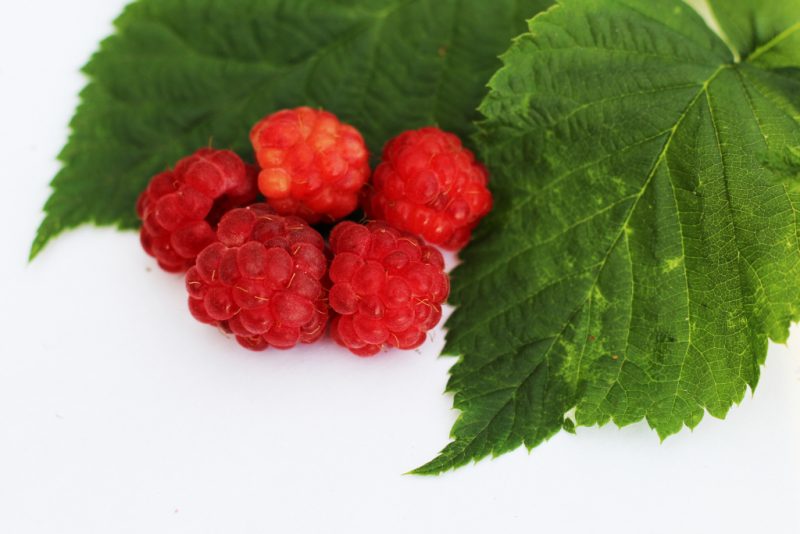
Doctors do not recommend using teas and decoctions from the plant to people who are diagnosed with:
- nephritis, urolithiasis and gout, since oxalates in the composition of the leaves can provoke an exacerbation of the disease;
- gastritis and peptic ulcer, because salicylates, which contains raspberry leaf, belong to the group of natural analogues of aspirin and can cause an increase in the acidity of the stomach with exacerbation of inflammatory processes on its mucosa;
- chronic constipation, since raspberries contain tannins that have an astringent effect;
- tendency to allergies.
In addition, the use of raspberry leaf should be limited while taking aspirin - this will avoid an overdose.
Raspberry leaves are a real natural gift, the skillful use of which will give the joy of a healthy life and well-being.



